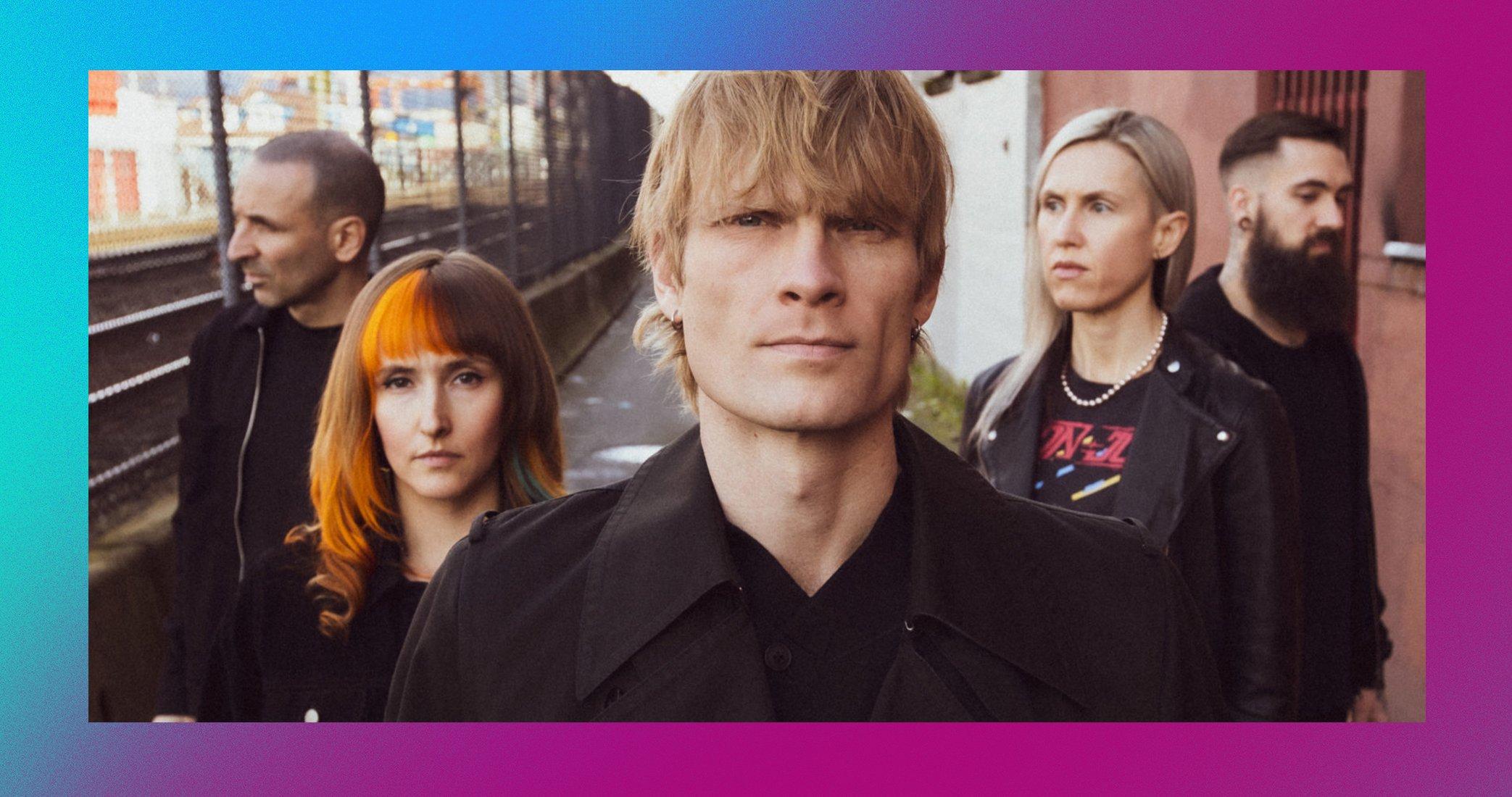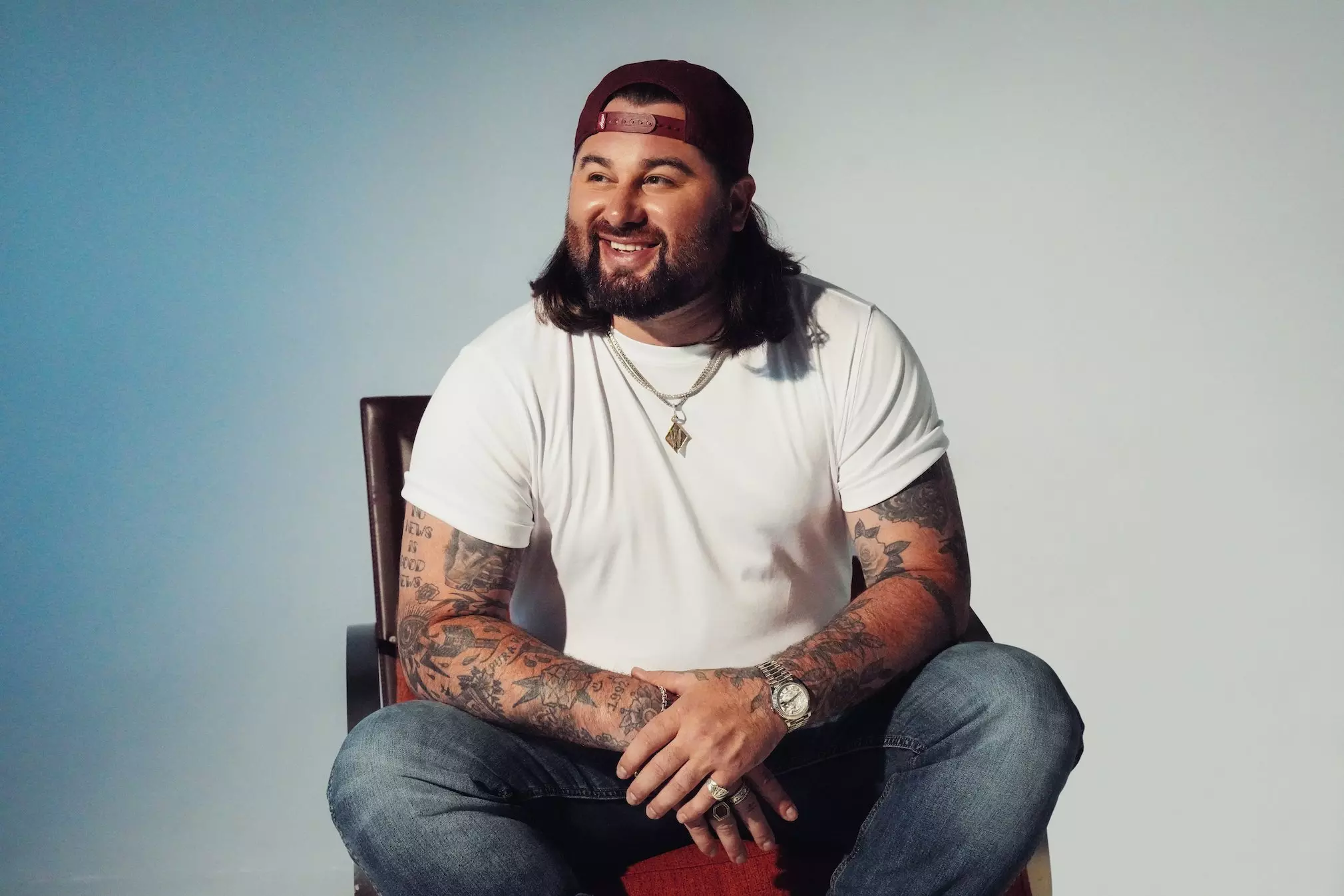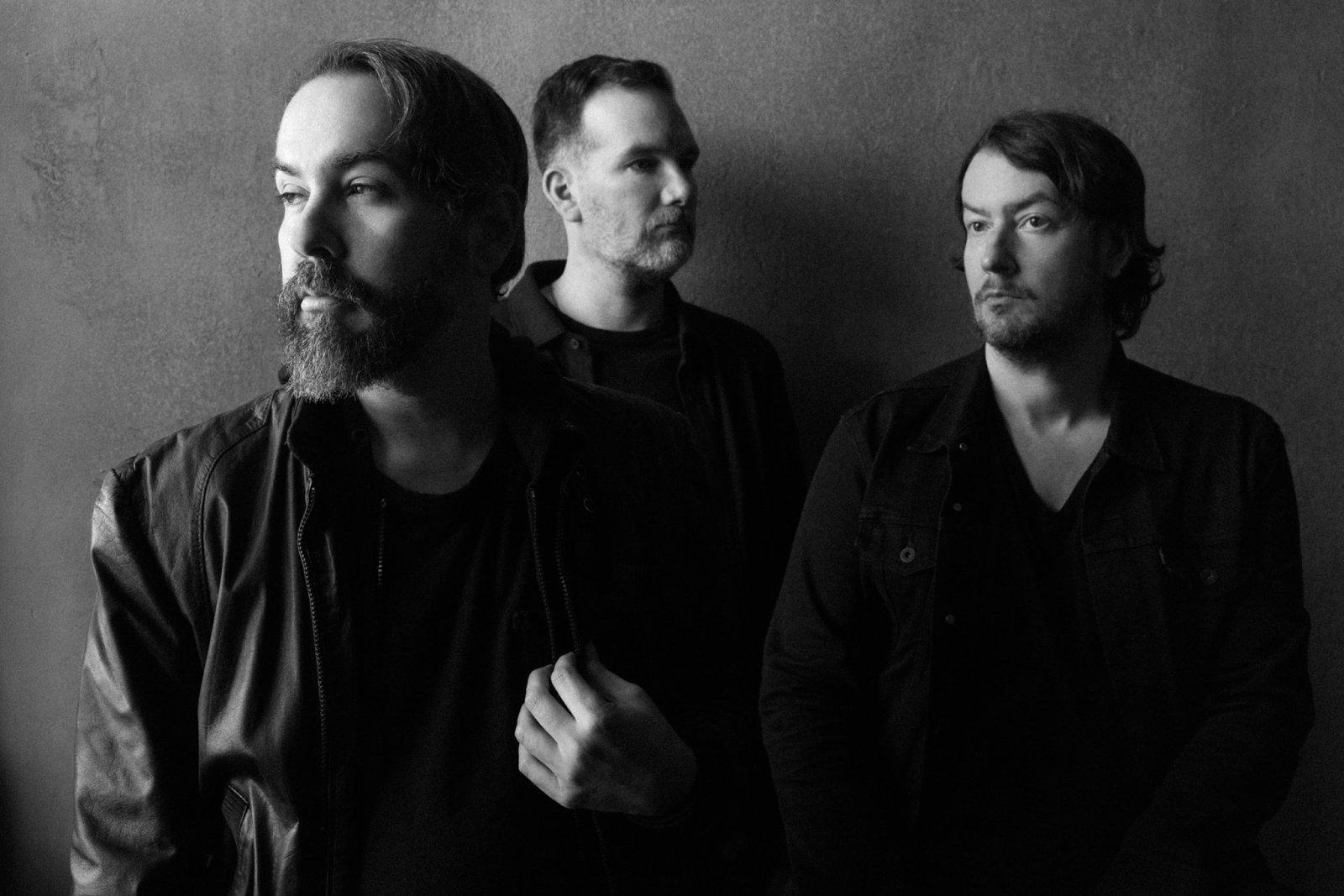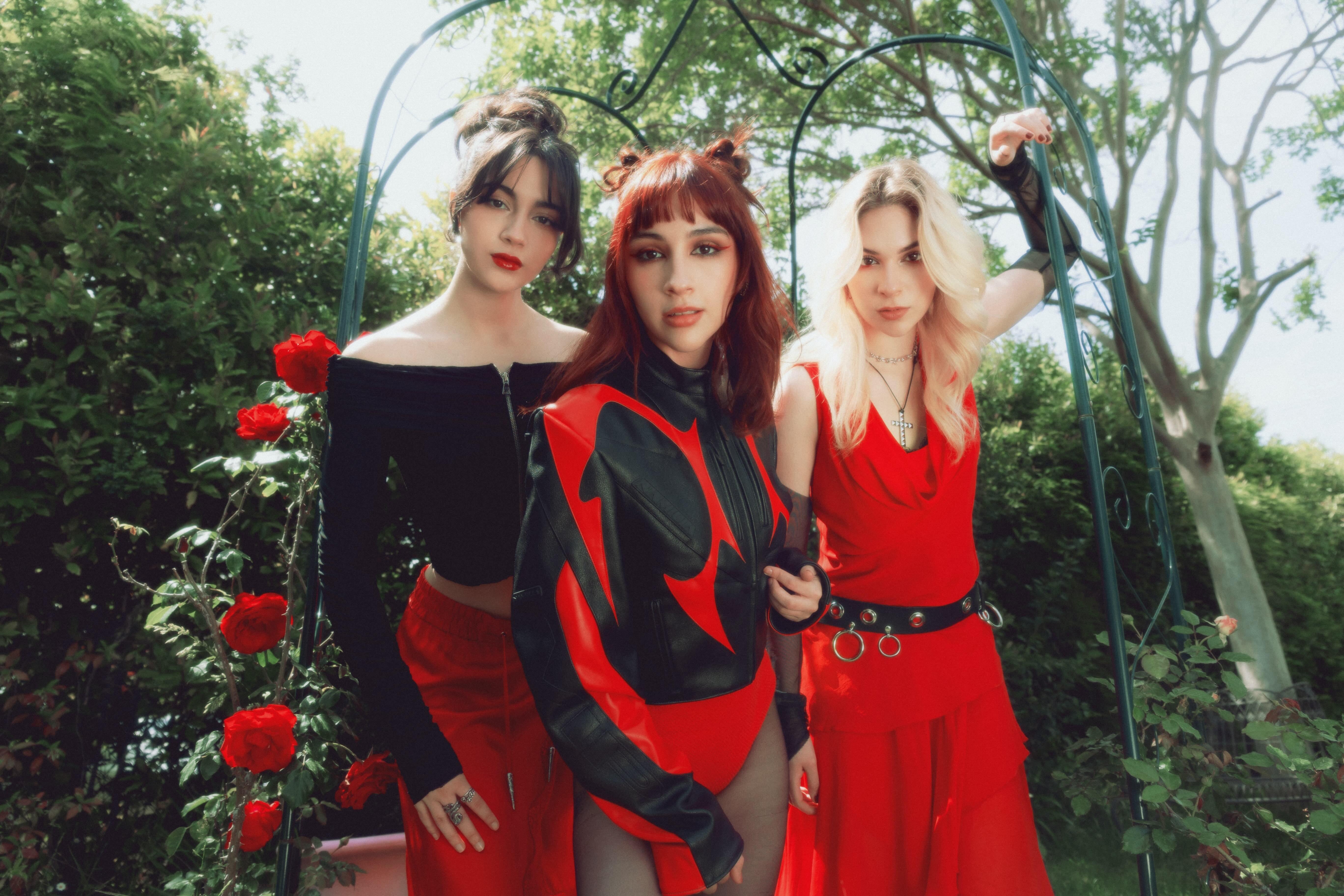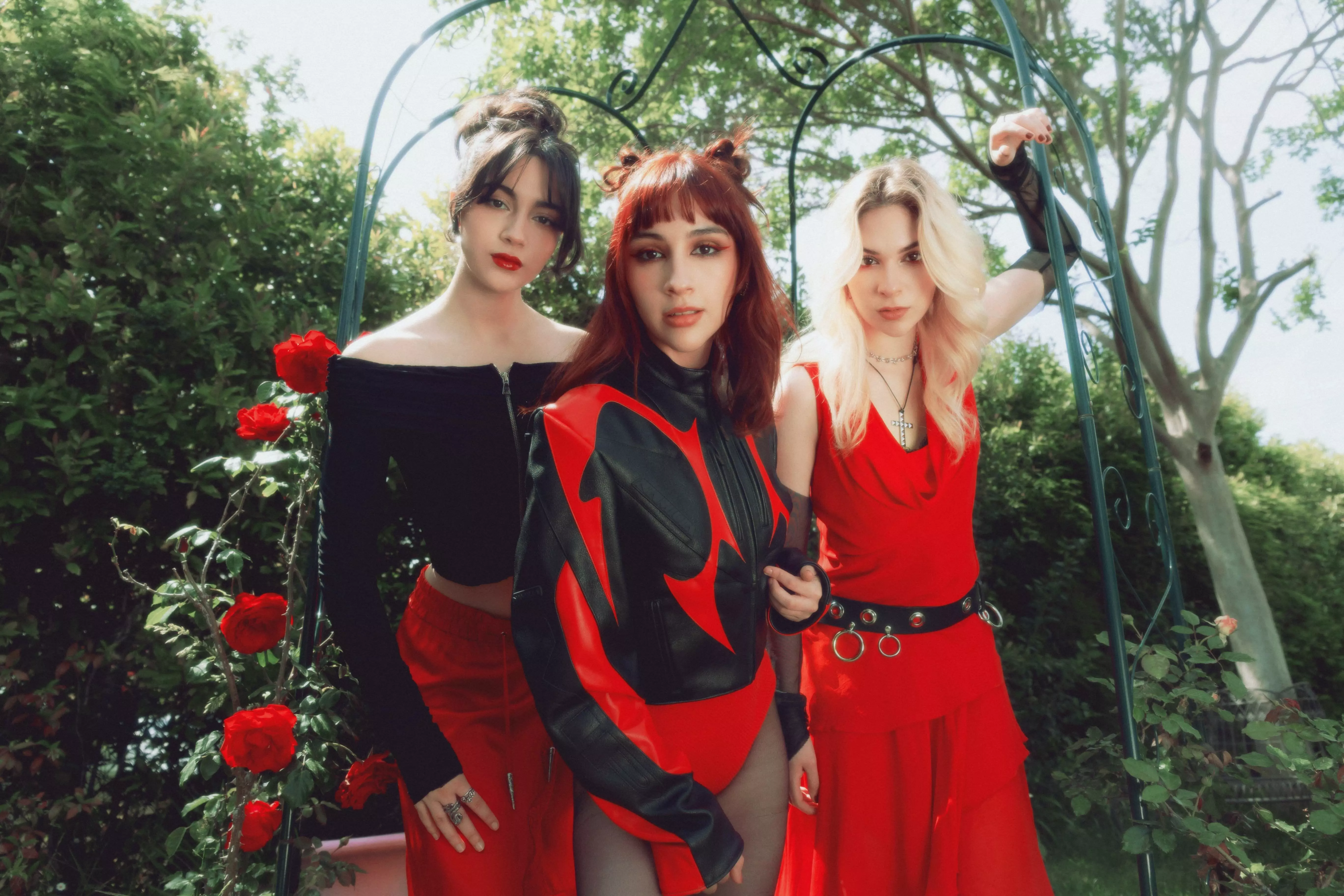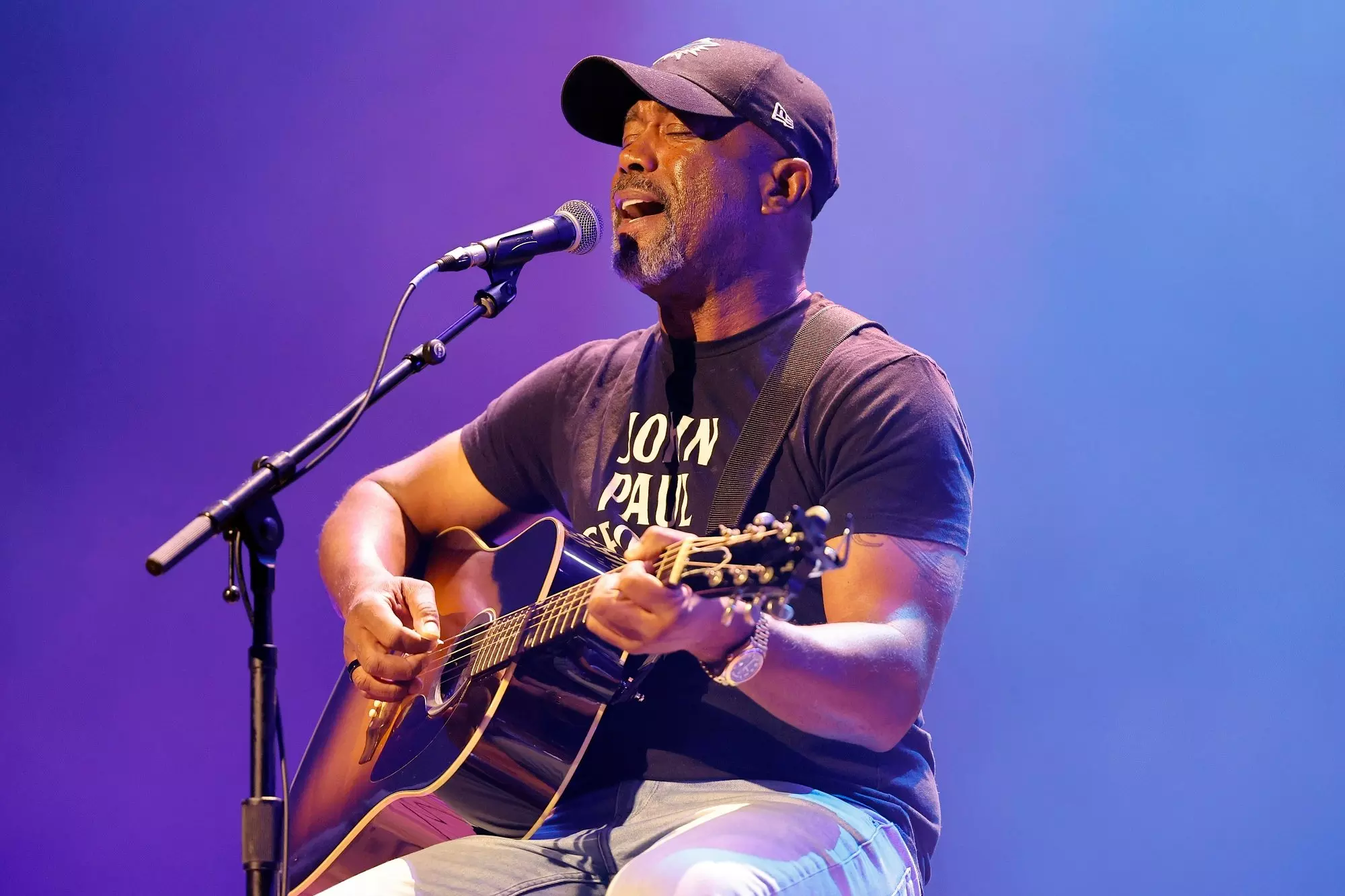Haters take note: nothing fires up a country boy like HARDY more than a naysayer. And this redneck has a long memory.
Despite the coveted catalog of country music hits to his credit — tunes he wrote for artists like Florida Georgia Line, Blake Shelton and Morgan Wallen, plus his own work as a solo artist — HARDY's third album begins with a three-minute response to a heckler who once left a nasty note in his jar in place of a tip.
That moment may have occurred a decade ago, but it's key to HARDY's defiant persona. In fact, the album's title is exactly what that note read — Quit!! — and its cover art is the actual napkin the message was written on, which the singer/songwriter has held on to all these years.
HARDY laughs off the memory at first, but as the title track plays on, his olive branch soon turns to coal. "I'm not the GOAT, I'm the black sheep hell-bent to find closure," he barks as the song escalates. "I can't let go — a note somebody wrote like ten years ago put a chip on my shoulder. If you wanted me to quit, you should've saved it, bro."
The takeaway here? HARDY won't quit. Or, to quote another Quit!! banger, "I DON'T MISS," when a hit is in the crosshairs, he "don't hit nothing but the bull's eye."
No doubt, he has the numbers to back it up. HARDY linked up with Florida Georgia Line after moving to Nashville in the 2010s, and landed his first country No. 1 as a songwriter in 2018 thanks to the duo and Wallen, with the smash "Up Down." As he began building a solo career — releasing a pair of EPs in 2018 (This Ole Boy) and 2019 (Where to Find Me) — he continued delivering chart-topping hits for FGL, Shelton, LOCASH, Wallen, Dierks Bentley, and more. As Quit!! arrives, HARDY boasts 15 No. 1 hits: 11 as a songwriter, and four as an artist.
Along the way, HARDY also established his Hixtape series, a countrified version of a hip-hop mixtape now three volumes deep, bringing together friends and superstars like Keith Urban, Trace Adkins, Thomas Rhett and a host of other stars to collaborate. Not only did Hixtape Vol. 1 land HARDY his first No. 1 as an artist in his own right — the Lauren Alaina and Devin Dawson team-up "ONE BEER" — but it put HARDY's shapeshifting musicality front and center.
"A lot of people ask, 'When did you decide to jump into the rock and roll thing?' HARDY, who uses his last name as his stage name, says. "I feel like I've always dipped my toes in it here and there, and a lot of my songs have been really close to it but not quite there. Hixtape, especially Vol. 1, I was definitely foreshadowing my sound, and I really didn't even know it at the time."
By now, modern country musicians regularly reflect influences from beyond Nashville's confines. But HARDY has played a big role in rock's country crossover, as he gradually showed more of his Mississippi-bred, guitar-riffing roots on his 2020 debut album, A ROCK. He fully embraced them on the 2023 double album, the mockingbird & THE CROW; while the first half has more country-oriented tunes like the Lainey Wilson-featuring murder ballad "wait in the truck," he lets loose on THE CROW.
"THE CROW will always be that cornerstone moment that defined who I am," he asserts. "It gave me the courage to do this Quit!! record."
HARDY has not only been an architect of this genre blending, but also its chief proponent — so much that in 2023, the L.A. Times crowned him "Nashville's nu-metal king." On Quit!!, he cashes in that currency with the gargantuan guitar riffs and bombastic beats popularized by acts like Limp Bizkit, and leans deeper into the rhythms and playful lyricism of hip-hop, a skill he recently flexed at the request of Jimmy Iovine and Dr. Dre on a hicked-up rendition of Snoop Dogg's G-funk classic "Gin and Juice."
Ironically, the further HARDY gets from straightforward country music, the closer he gets to who he really is as an artist. Below, the chart-topping star details the backstory of Quit!!, his conflicted relationship with the country-music formula, and how he'll continue pushing boundaries within the genre and beyond.
You grew up in the small town of Philadelphia, Mississippi. What role did music play in your upbringing?
My dad introduced me to rock and roll in general, but it was his era of rock and roll. Whatever you define as classic rock and everything under that umbrella. But music was a big deal in Philadelphia and it still is. There were tons of cover bands, and a lot of [my] buddies were into music. So that had a big influence on me.
I, thankfully, was in that last era of kids that the only time they got to hear a song was on MTV or on the radio. And I remember hearing "In the End" [by] Linkin Park, and then getting Hybrid Theory on CD. I remember the first time I saw [Limp Bizkit's] "Nookie" video on MTV. I was heavily influenced by all that stuff. I'm very thankful that I grew up in the era before the internet was really big.
Were you into country music back then?
Surprisingly, not at all. Not until Eric Church, Brad Paisley, a couple of people started singing about stuff that really piqued my interest. But no, I didn't really listen to much country.
I think the only country that I listened to, if you even call it that, was Charlie Daniels. He played at the Neshoba County Fair. I got to see him twice. But even he was more of, like, you'd almost call it more Southern rock. For some reason, country music at the time didn't do it for me. It took me a long time to get into it.
You recently re-envisioned "Gin and Juice." Were Snoop Dogg and Dr. Dre big artists for you when you were younger?
Yeah, especially Snoop. Snoop was in his later years when he started doing more pop stuff. I was a little too young for Doggystyle. I was 4 years old when Doggystyle came out, so my folks weren't letting me listen to that. But I will say, [Dr. Dre's 1992 album] The Chronic and especially [1999's] Chronic II, those records were huge. And anything that Dre touched after that, like all the beats he produced for 50 Cent, and obviously I'm a huge Eminem fan. I mean, all the way up to Kendrick [Lamar]'s early stuff.
I don't know how much they influenced me musically, but I definitely listened to both of them at the time.
You've got so many projects and co-writes and stuff going on, always. Is it easy to pinpoint where your journey to Quit!! began?
I can tell you for a stone-cold fact that "BOOTS" [from A ROCK] is responsible for the album Quit!! That was the first song that I ever wrote that had a breakdown in it. And when I played that live before it came out, people didn't know it, so it was a little different then. But once the song came out, and we started playing it live, it was bigger than "ONE BEER." It was bigger than "REDNECKER." It was the biggest song in our set, and to this day, it's still one of the biggest songs in the set.
But because I love the rock and roll sound so much, that's the song that I was like, Okay, this is working, because these people are losing their s— when we go into this song. So, then, that inspired me to write "SOLD OUT," and once "SOLD OUT" came out, and we started playing that song, that song was even bigger than "BOOTS," and it was heavier than "BOOTS." After "SOLD OUT," it was "JACK," and it's just a snowball of writing heavier songs and having the courage to keep going. "BOOTS" crawled so that Quit!! could run, you know? That was definitely the song that started it all.
The new album builds on the mockingbird & THE CROW and the direction you were heading.
Yeah, I think it builds on it maybe in the sense that there's a lot more screams, and maybe more breakdowns, and it's a little heavier than the mockingbird & THE CROW at times. But it is also very different. There's a lot more, like, pop-punk stuff and, I don't even know what you would call it, post-hardcore-sounding s—.
But all of the rock and roll stuff stands on the shoulders of THE CROW. It will always be that cornerstone moment that defined who I am. I mean, it definitely teed me up. It gave me the courage to do this Quit!! record.
I like that word, courage. It's not a word I expected to hear out of you based on your persona, but that's a very interesting way to phrase it.
No, I mean, the metal and country cultures are very, very, very different. There's never fear, but there's definitely, what's the right way to say that? You know, there's like when we throw like the goat horns and s— on the screen. Country has a big Christian background, and metal is like the exact opposite of that, and those can clash a lot, but there's definitely a little bit of some reserve — it seems to not get too much push back — mixing the two. My mom's not crazy about it, but what can you do?
And you have moments like "wait in the truck," where you're not writing for the party. Do you see yourself pursuing those avenues more often? Does the world want to hear HARDY reflect?
You mean like more of the deeper country stuff?
Correct, yeah.
I hope. That's the s— I love. I feel like they're so few and far between. Like, "wait in the truck," we just got so lucky. I feel like "ONE BEER" was kind of the same. Like, it's gotta be the right day, and the right time, and the right people in the room to really tell a story. It's tough. But I would love to continue to have those cool story songs.
But what I will say is there's a lot of gray area between the black-and-white of HARDY country and HARDY rock and roll. I'm still going to put out country songs. The gray area is that to me and to a lot of people, they're all just HARDY songs. But I have so many songs that I have written that I wanna put out that are so, maybe if they're not storylines, they're even deeper down the rabbit hole of thought-provoking stuff, like "A ROCK," or maybe even "wait in the truck," or even a song I have called "happy," on the last record — just songs that are very, very thought-provoking.
Just trying to push my own boundaries of country music, and not everything is right down the gut, you know, "let's go to radio with it." But just really trying to experiment with what I wanna say with country music. So, yes, there's definitely more of that coming.
You're playing your first headlining stadium gig in September. How has performing in those venues, and anticipating that, informed how you write? Are you writing for the stage?
Yeah, 100 percent. I would say, 75 percent of the time you're writing for the stage — even if it's not for myself, if I'm writing for somebody else — I'm definitely writing for the stage. I cannot tell you how many times I've sat in the room and been like, This s— is going to pop off live! And then try to put the other writers in that headspace.
Like on [Quit!! track] "JIM BOB," when we did the pow-pow-pow! thing, I'm like, just think about how cool it's gonna be live, and living in that headspace, because that's where it all comes to life. That's the end product.
Writing for the stage is something that a lot of people do. And that's why songwriters love going out on the road, is because they go out and they write songs with these artists, but they love watching the show because they get to see what really translates live, and then take that back to the writing room and try to recreate that.
Did that kind of experience have anything to do with you making the move to a marquee artist? Because not all songwriters can make that jump. Or was that always the plan?
Yeah, I mean, it was always that kind of thing. I was fortunate that I got to see Morgan [Wallen] perform "Up Down," and FGL perform a couple of their songs before I made the jump into an artist. I kind of already scratched that itch a little bit.
The Nashville writing scene can seem like a 9-to-5 kind of boring thing. But it doesn't sound that way from the way you describe it.
It's a little bit of both. The funny thing about that is like, if you walk into a publishing company, 10:30, 11 o'clock, whenever people start getting there, it's a bunch of dudes or girls standing around drinking coffee, hanging out. It's like a break room, and then everybody's like, "All right, well, y'all get a good one." And then everybody goes into their own rooms. That part of it is very 9 to 5.
But there is definitely — especially with our group of people, when you get on something that is so special, it's beyond, like, "We're writing a hit today." There's just something that transcends that. I don't know how to describe it, man. That's when it's really, really, really, really great. The Nashville process, that's what it's all about — having those moments in the room where you're like, "This is special," and, like, "We're witnessing something special that is going to affect people on a global or on a nationwide scale."
I remember when we wrote "wait In the truck" and how we were all just gassing each other up because we were like, "Dude, this song is gonna help a lot of people." And that's when the 9 to 5 goes away. We're being creative together, and it's a special thing.
There's been so many moments like that, where you're just so thankful to be a part of a great song, and how hyped everybody is. It's a feeling that's really, really hard to beat.
More Of The Latest Country News & Music

